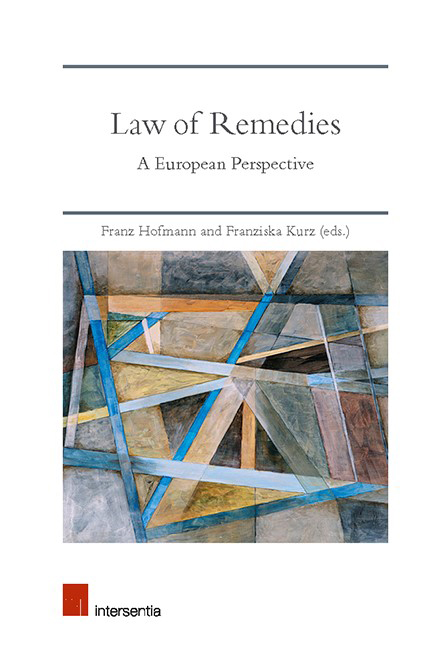Book contents
- Frontmatter
- Contents
- List of Cases
- List of Authors
- PART I THE ISSUE OF REMEDIES
- PART II MECHANISMS OF ENFORCEMENT
- PART III FUNCTIONS OF REMEDIES
- PART IV UNDERLYING PRINCIPLES
- Common Principles of Damages in EU Private Law?
- A Manifesto on Proportionality and Copyright Law: ‘Taking Remedies Seriously’
- Asking Innocent Third Parties for a Remedy: Origins and Trends
- PART V REMEDIES IN CONTRACT LAW AND INTELLECTUAL PROPERTY
- Index
- About the Editors
A Manifesto on Proportionality and Copyright Law: ‘Taking Remedies Seriously’
from PART IV - UNDERLYING PRINCIPLES
Published online by Cambridge University Press: 09 November 2019
- Frontmatter
- Contents
- List of Cases
- List of Authors
- PART I THE ISSUE OF REMEDIES
- PART II MECHANISMS OF ENFORCEMENT
- PART III FUNCTIONS OF REMEDIES
- PART IV UNDERLYING PRINCIPLES
- Common Principles of Damages in EU Private Law?
- A Manifesto on Proportionality and Copyright Law: ‘Taking Remedies Seriously’
- Asking Innocent Third Parties for a Remedy: Origins and Trends
- PART V REMEDIES IN CONTRACT LAW AND INTELLECTUAL PROPERTY
- Index
- About the Editors
Summary
INTRODUCTION
In the last decades intellectual property law has been facing a severe crisis. Intellectual property law is accused of not promoting a fair and balanced regime. It is also blamed for not being efficient, in utilitarian terms, since it mainly serves right-holders’ interests while neglecting the vast public interest.
In theoretical terms, this crisis could be described as a debate about the initial allocative or distributive justice assumptions of intellectual property law. In other words, the debate is whether the initial allocation of entitlements, through the exclusive intellectual property rights, is just, fair and efficient. Accordingly, contemporary scholarly writings propose various ways to ease the crisis, through an allocative justice discourse, which therefore is focused on the redefinition of intellectual property rights. Since the focus is on the redefinition of rights, there is an excessive discourse on the exceptions and limitations to the rights, as a vehicle for promoting fairness. Thus far, therefore, intellectual property discourse has been focused almost entirely on the scope of the rights.
Yet, rights and exceptions are subject to the strict regime of international intellectual property law. Therefore, this discourse has reached, to a significant extent, a dead end. This chapter constitutes a manifesto that stresses another powerful path for easing the crisis – and that is through remedies.
Remedies are left to national courts’ discretion and are crafted on a case-by-case basis. Therefore, they may play a major role in realising a de facto fair, balanced and more efficient intellectual property law. The main argument is that remedies are a powerful and pragmatic tool, which may promote the end-result that allocative justice has failed to achieve.
THEORETICAL BACKGROUND OF THE ROLE OF REMEDIES
The theoretical background of the role of remedies is essential for a better understanding of their importance in designing substantive law. The line of the argument relating to the potential function of remedies in promoting fairness and efficiency is the following: Fairness and/or efficiency are the goals underlying any law. These goals are crafted through allocative justice entitlements, namely rights and duties. Corrective justice, in contrast to allocative justice, aims at promoting fairness and efficiency within two concrete parties, by transferring resources from one party to another, in order to maintain the initial allocation of entitlements that were set by allocative justice considerations.
- Type
- Chapter
- Information
- Law of RemediesA European Perspective, pp. 223 - 232Publisher: IntersentiaPrint publication year: 2019

